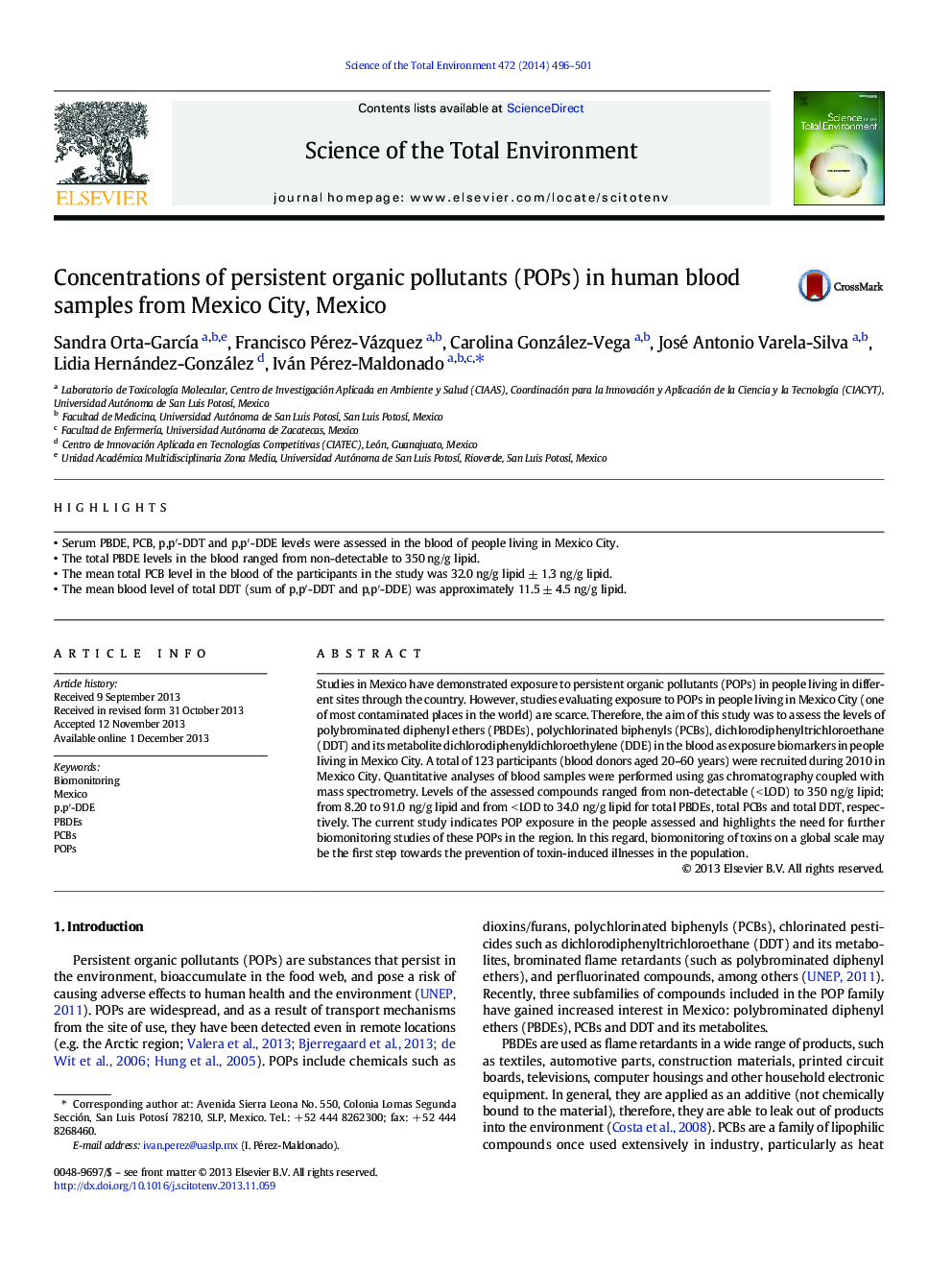| Article ID | Journal | Published Year | Pages | File Type |
|---|---|---|---|---|
| 6331175 | Science of The Total Environment | 2014 | 6 Pages |
Abstract
Studies in Mexico have demonstrated exposure to persistent organic pollutants (POPs) in people living in different sites through the country. However, studies evaluating exposure to POPs in people living in Mexico City (one of most contaminated places in the world) are scarce. Therefore, the aim of this study was to assess the levels of polybrominated diphenyl ethers (PBDEs), polychlorinated biphenyls (PCBs), dichlorodiphenyltrichloroethane (DDT) and its metabolite dichlorodiphenyldichloroethylene (DDE) in the blood as exposure biomarkers in people living in Mexico City. A total of 123 participants (blood donors aged 20-60Â years) were recruited during 2010 in Mexico City. Quantitative analyses of blood samples were performed using gas chromatography coupled with mass spectrometry. Levels of the assessed compounds ranged from non-detectable (<Â LOD) to 350Â ng/g lipid; from 8.20 to 91.0Â ng/g lipid and from <Â LOD to 34.0Â ng/g lipid for total PBDEs, total PCBs and total DDT, respectively. The current study indicates POP exposure in the people assessed and highlights the need for further biomonitoring studies of these POPs in the region. In this regard, biomonitoring of toxins on a global scale may be the first step towards the prevention of toxin-induced illnesses in the population.
Related Topics
Life Sciences
Environmental Science
Environmental Chemistry
Authors
Sandra Orta-GarcÃa, Francisco Pérez-Vázquez, Carolina González-Vega, José Antonio Varela-Silva, Lidia Hernández-González, Iván Pérez-Maldonado,
